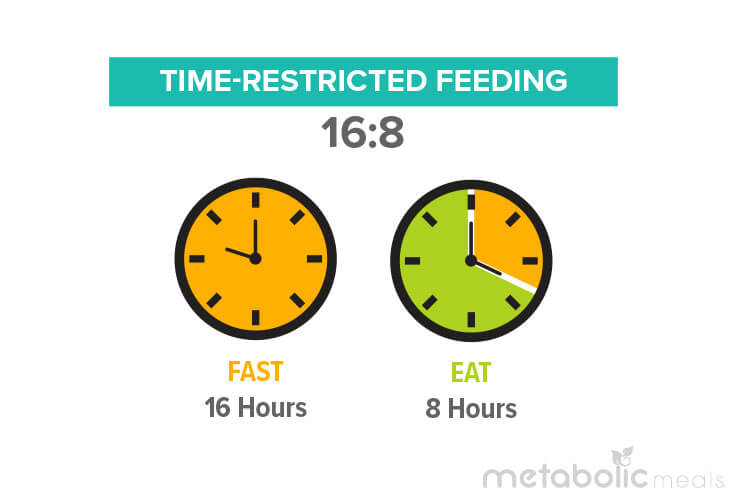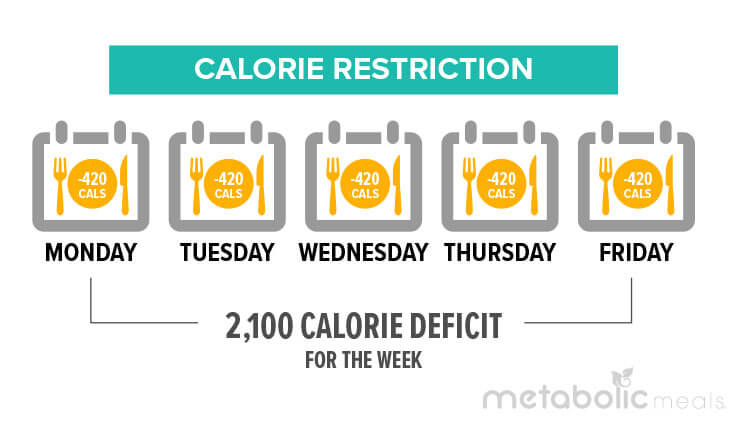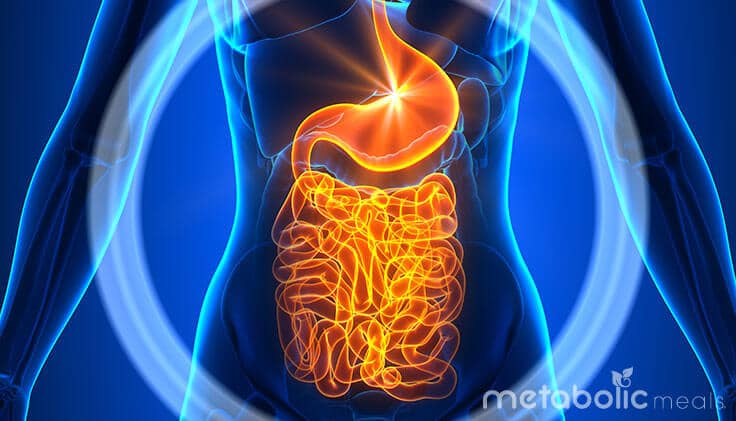ARTICLE AT A GLANCE
Intermittent Fasting and Calorie Restriction have a lot in common. Both eating strategies work by placing limits on your diet and can be great tools for weight loss. However, there are a number of fundamental differences that can make one or the other better suited for your specific goals. How do you know which one is right for you? In this article, you’ll discover:
It’s easy to confuse intermittent fasting and calorie restriction. Both eating patterns involve restraint, but in different ways.
Intermittent fasting (IF) narrows your feeding window to only a specific time period, while calorie restriction (CR) limits the total daily calories you consume.
You don’t have to limit calories on an IF diet, only the hours in which you eat. For example, on a 16:8 IF plan, you’d fast for 16 hours each day and eat only within an eight-hour window, such as between noon and 8 p.m.

Conversely, a CR approach is designed to put you into a caloric deficit each day. You could cut 2,100 calories from your diet every week with a 300-calorie deficit for seven days, or with a 420-calorie deficit for five days.

So which way is better? The answer is whichever one best fits your lifestyle. As long as you’re consuming high-quality whole foods and getting enough essential nutrients, both strategies can help you lose weight.
Calorie Restriction
CR is a numbers game. Using this approach, you can reduce your calories by 10% to 40% based on your personal goals. If you want to lose weight quickly, reducing your calories by a large deficit will help you do that. However, you must be mindful of the food you’re eating so your energy stays high and your nutrition needs are met. Eating nutrient-dense foods will help you feel satiated for longer.
You might have better luck with CR if your goal is:
1. Fat loss. Consuming fewer calories every day will result in weight loss, especially when combined with consistent exercise… but only up to a certain point. Eventually, your body will adapt, and your weight loss will plateau. You can get back on track by reducing your daily caloric intake further to introduce a new deficit.

2. Longevity. CR can also promote healthy levels of FOXO3A. This gene increases autophagy (cellular cleaning), DNA repair, and antioxidant responses; reduces inflammation and cell cycle progression; and improves blood pressure, insulin levels, and thyroid hormones. In one study, CR helped prolong the life of a rhesus monkey who is now 43 years old — the equivalent of a 130-year-old human.
Intermittent Fasting
IF is all about timing. Much like restricting calories, fasting works best when you combine it with regular exercise.
Intermittent Fasting is the best strategy if your goal is to:
1. Eat around abnormal work hours. Night shift workers like nurses don’t have the luxury of designated meal breaks. When you have the ability to plan healthy meals around your work schedule, IF is easier to incorporate.
2. Kick-start ketosis and autophagy. Ketosis is the state in which your body burns fat for energy instead of carbohydrates. IF can help you reach ketosis faster because your body will be forced to use fat for fuel. Fasting also lets your cells perform autophagy and other housekeeping chores more efficiently.
3. Boost gut health and digestion. IF helps balance out your gut’s microbiome and digestive processes. When given a chance to rest, your digestive system can strengthen its mucosal lining and reduce oxidative damage and inflammation. A study published by the National Institutes of Health showed that introducing IF at an early age helped to significantly improve gut health and longevity in flies by reducing age-related pathologies.

4. Improve cognition and productivity. What’s good for the body is typically good for the brain. Insulin resistance and reductions in inflammation, oxidative stress, and blood sugar levels boost the health of your brain as much as your body. Fasting also increases levels of a protein called brain-derived neurotrophic factor. Deficiencies of this protein can lead to depression and other cognitive issues.

5. Lower the risk of insulin resistance. Insulin resistance contributes to virtually all chronic diseases, most notably diabetes. When you fast intermittently, you decrease levels of the “hunger hormone” ghrelin, which helps reduce the urge to overeat. Your body gets a reprieve from constantly breaking down sugars and lets it become more sensitive to insulin.
6 Change hormone functions. When using CR alone, you don’t benefit from the hormonal adaptations brought about by fasting. IF helps boost levels of growth hormone in your blood, which facilitates fat burning and muscle gain. Plus, your appetite goes down, and your metabolism kicks into a higher gear.
Which Approach Is Right for You?
They might seem similar, but CR and IF have crucial differences. Since IF is typically easier to maintain both psychologically and physically, it’s often more successful at helping to regulate glucose, control lipids, manage body weight, boost lean mass, and reduce the risk of chronic diseases. However, it’s not recommended for pregnant women, people with histories of eating disorders, or the chronically stressed.
CR works well for weight loss in the short term, but it can be tough to be consistent long enough to see results and could lead to malnutrition if done incorrectly. Because CR is spread out over many lower-calorie, less-satiating meals, it can make you hungrier, unmotivated, irritable, and tired which can trick your brain into craving unhealthy foods. CR also doesn’t address the problem of insulin resistance.
No matter what approach you take or your reasoning behind it, always focus on eating healthy, nourishing foods.

If you need help planning or preparing meals, consider using a meal delivery service that specializes in IF, CR, and other meal plans tailored to your specific goals.
Kelley Baker is a Nutrition Health Coach with 15 years of experience of personal training and holistic lifestyle coaching. Her certifications include NASM, C.H.E.K, ICANS, and Poliquin.







